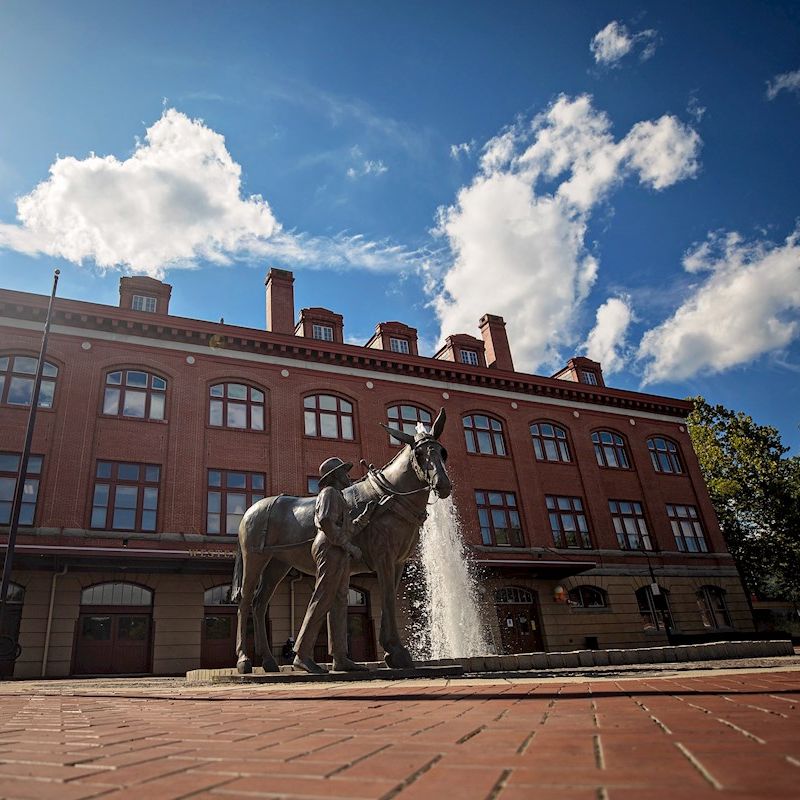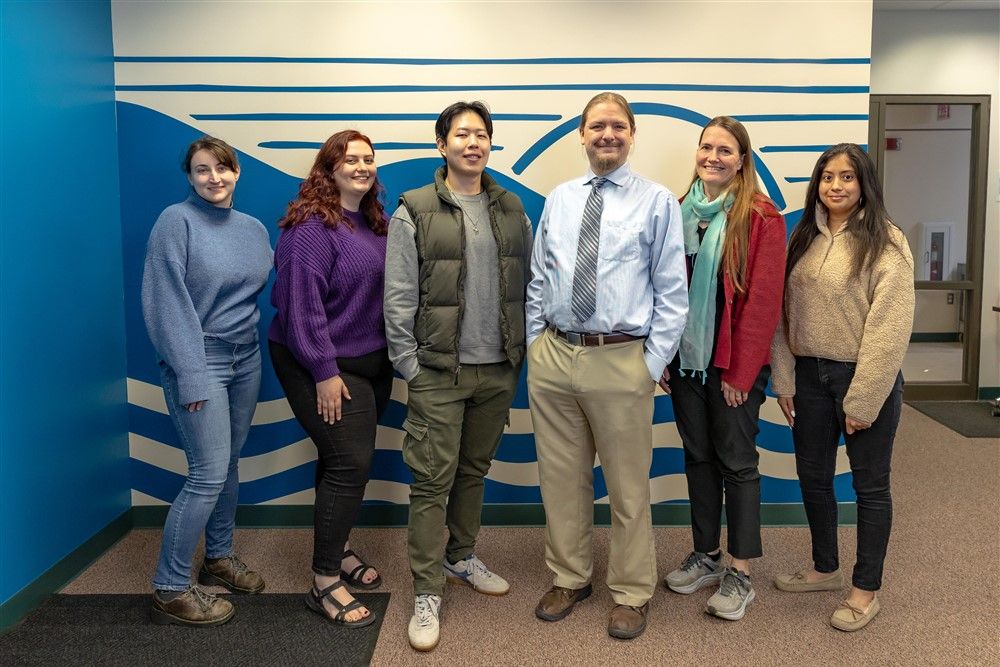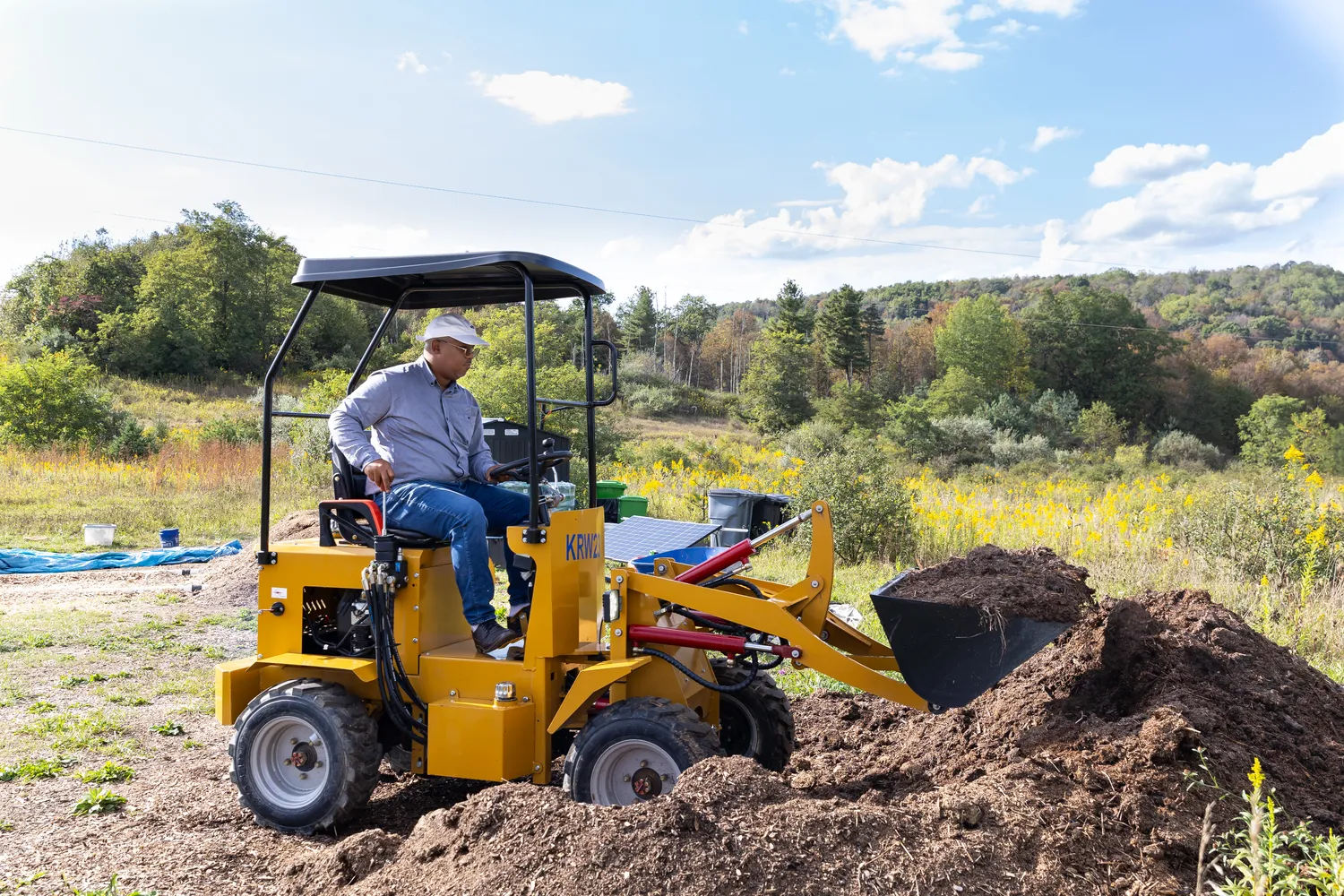
Frostburg entrepreneur Ardon Hall is introducing a new solution to food waste and sustainability. His company, Clean Compost, converts organic waste from landfills into microbially diverse, nutrient-rich soil amendment. By blending this compost with different types of topsoil, the company helps farms restore biodiversity, businesses meet sustainability goals, and communities reduce landfill use.
Hall’s vision grew from his foundation in technology. With years of experience in digital product and data systems, he saw an opportunity to use his skills for something different.
“My background is in data and systems, and Western Maryland needed practical infrastructure for organics. I started Clean Compost to give schools, hospitals, and businesses a nearby, affordable way to comply, and to keep value here in Allegany County.”
Unlike traditional mulch-based compost, the Clean Compost process creates a soil amendment designed to bring farmland back to life and strengthen long-term productivity.
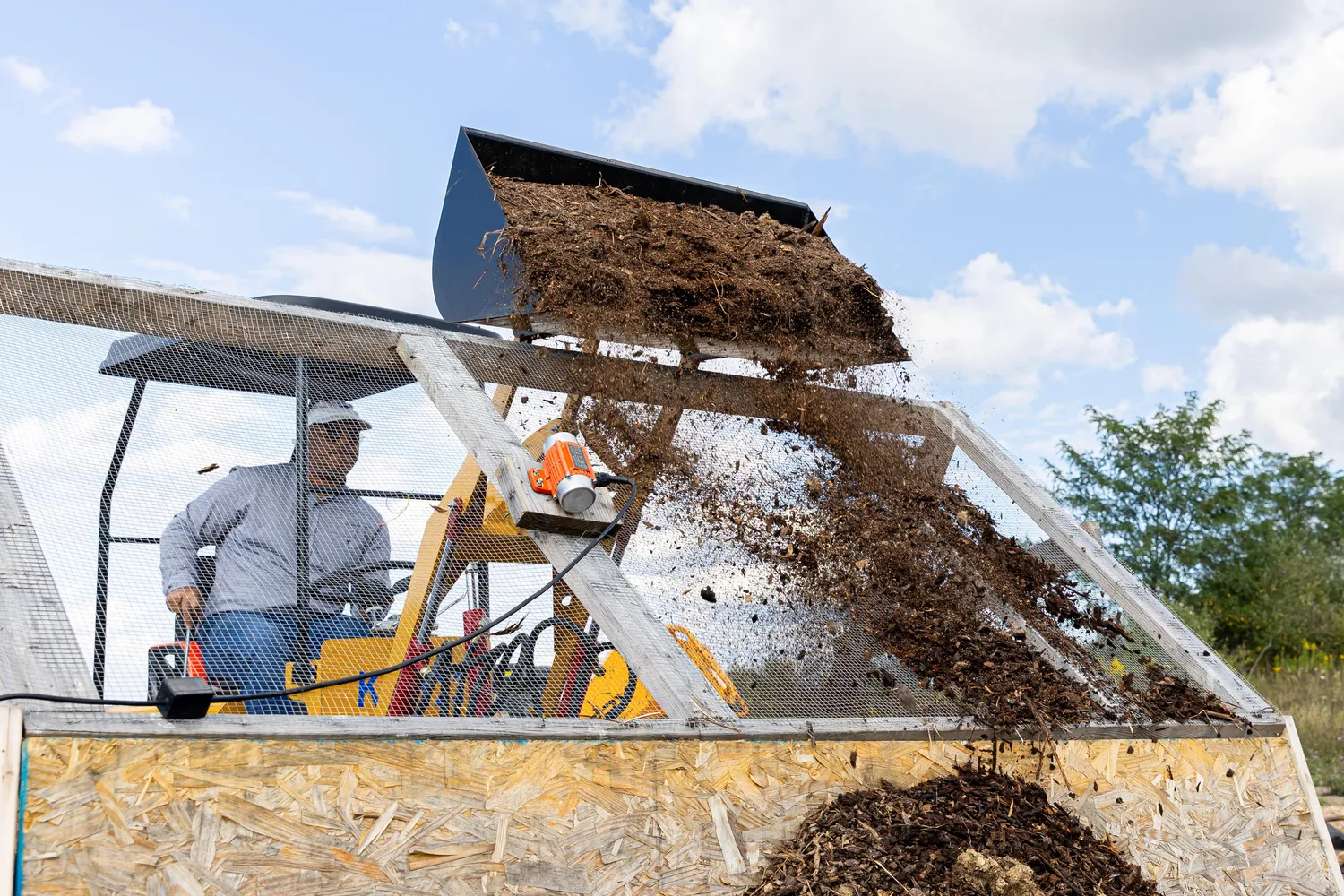
“A lot of people think mulch when they hear compost, but what we’re creating is different,” said Hall. “The type of compost that I'm working with is very microbial-heavy and biodiversity-rich. It comes with a particular type of NPK [Nitrogen, Phosphorus, Potassium] that is nutrient fortified and really helps make a strong product.”
Maryland’s Food Residuals law (HB264) makes this service especially valuable. Large generators like restaurants, schools, and hospitals must reduce or recycle qualifying food scraps when feasible. Clean Compost fills this critical gap for Western Maryland by offering nearby collection, processing, and clear impact reporting so organizations can track diversion and carbon benefits.
“There is that subset of food scraps and organic waste that comes in very large amounts, very fast,” Hall said. “The waste generators tend to have a very large cost, or they have mandates because they generate over what's allowed. Having that as a service in the area helps them be able to take care of their compliance.”
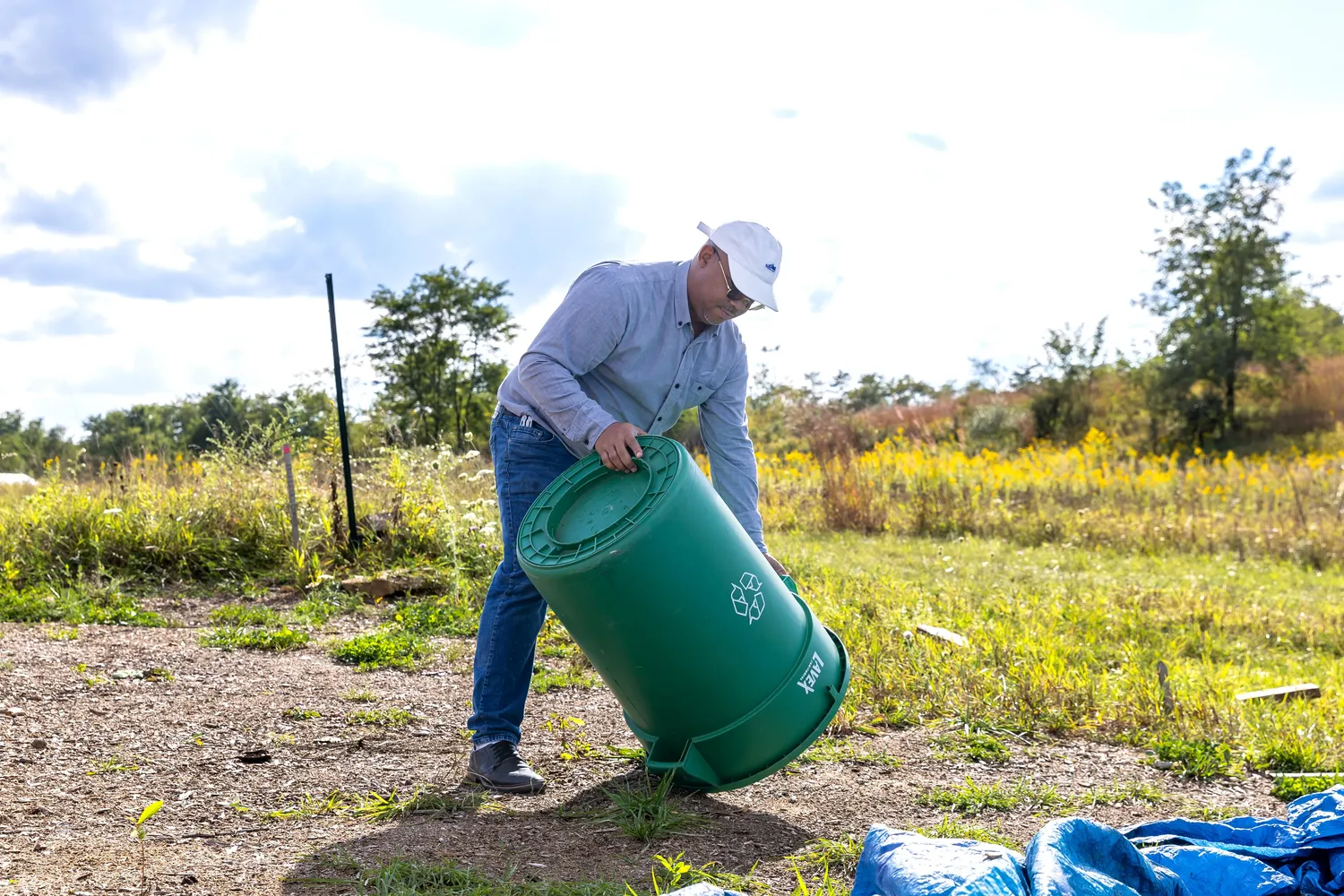
Diverting food waste also helps preserve limited local landfill space. When Clean Compost receives these scraps instead of the landfills, it extends the lifespan of these facilities and reduces the strain on the local government.
Current partnerships include Wisp Resort, which has enough food waste to participate in the program and the sustainability goals to back it up. Hall also partners with Alder 206 Bistro & Bar, a restaurant that sources from local farms and then returns scraps back into the cycle as compost. Additionally, Clean Compost has a pilot underway with UPMC Western Maryland.
Hall launched Clean Compost in Frostburg, his hometown, with the goal of raising his family and building his company in the same community that raised him. Support from the county’s incubator program, the Appalachian Trail Business Incubator, and the Small Business Development Center have been instrumental in guiding the business through permitting, land use, and financial planning. Hall also serves on the board of the Tri-State Growth and Commerce Coalition (TGCC), deepening ties between local business and regional development.
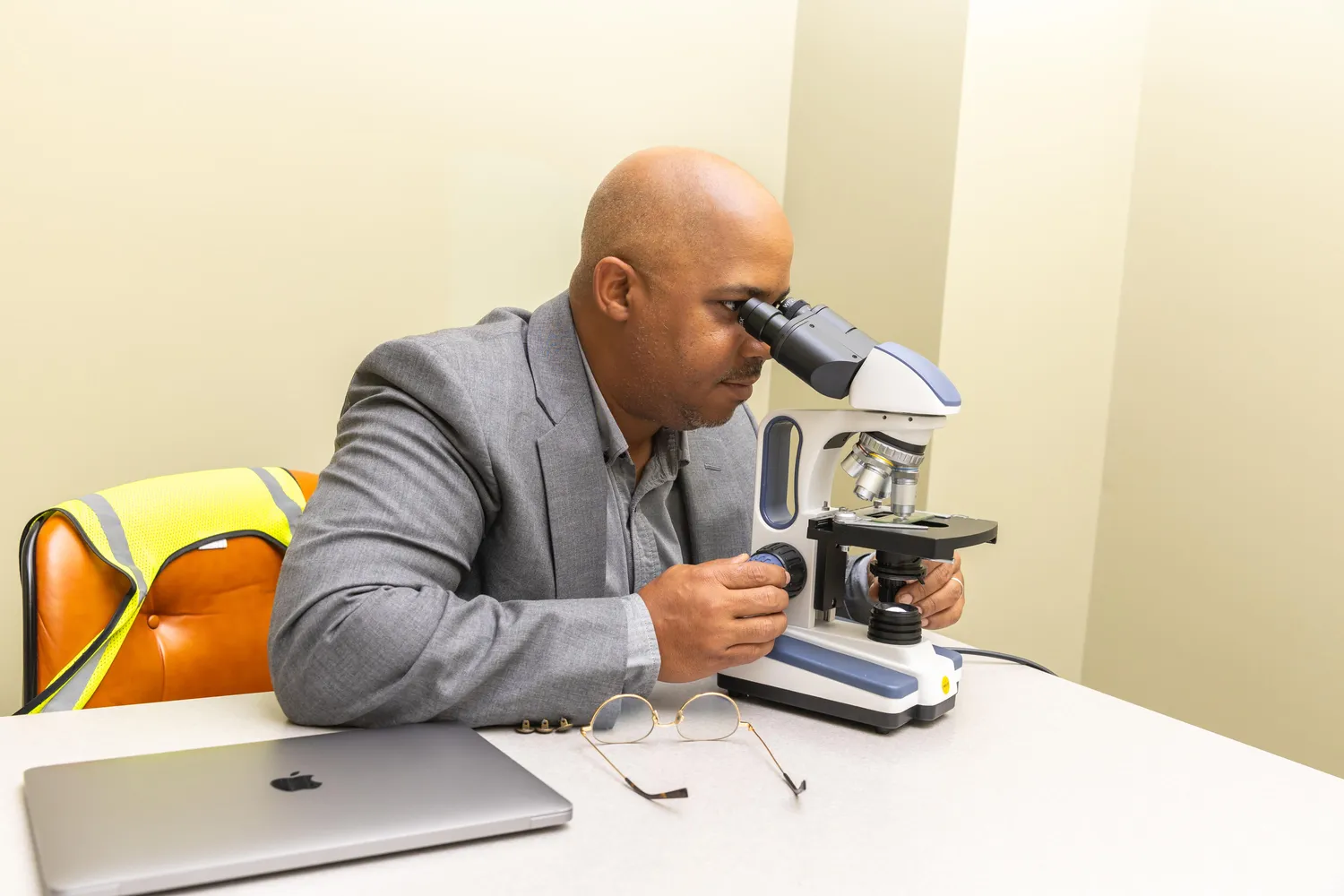
“The incubator program has been monumental,” said Hall. “You can have a great idea and the best financial books in the world, but at the end of the day, I think that environment and who you're working with ends up dictating what you can do and what you will do. Being in the incubator and being a part of what I’ve been working with has helped me navigate that immensely.”
To make participation easy, Clean Compost pairs service with software. A lightweight ESG-style dashboard gives customers a clear view of what they’ve diverted and the estimated greenhouse gas (CO₂e) impact, turning sustainability into simple, shared metrics.
Drawing on his background in technology, Hall is also developing new tools to address one of the toughest challenges in the field: hauling. Many composting businesses encounter difficulties when expanding into hauling operations, especially on the residential side, and this tool aims to streamline that process. At the same time, he is developing a proprietary compost management software with AI-driven features that will help his employees.
“For us, it’s about practical innovation,” Hall said. “If we can keep organics out of the landfill, build healthier soils, and help local institutions hit their goals—everybody wins.”
For the latest updates on Allegany County’s business community, visit our blog page here.
